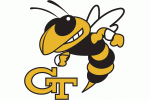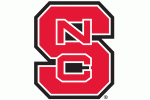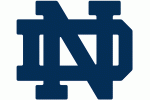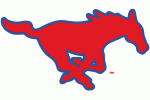This week has been a busy one for the national media. In the span of three days Sports Illustrated and Yahoo! Sports have both published reports alleging a whole range of NCAA violations involving Oklahoma State and three SEC schools. In the case of Oklahoma State, SI.com is midway through a week long release of a multi-part series that paints the Cowboy football program as being out of control.The report written by George Dohrmann and Thayer Evans alleges direct payments to players occurring in the locker room and academic fraud on a wide scale. Upcoming installments talk about sex, drugs but sadly no rock-n-roll. On the Yahoo! Sports side, Charles Robinson(along with Rand Geltin) the harbinger of NCAA doom, have alleged five SEC players received over $45,000 in improper benefits from an agent.
The reactions to these reports have been mixed and in light of how both the North Carolina and Miami situations were viewed by the national media, quite fascinating.
When the Oklahoma State story broke earlier this week alleging a pay-for-play scheme dating back to 2001, the overall reaction on Twitter was surprisingly muted. Given the nature of the allegations and the brazen manner it has been reported they occurred, one would think you would see at least a healthy dose condemnation much like UNC and Miami both endured when their stories broke 2-3 years ago. That turned out to not be the case. The response to the report can best be described as a collective shrug. Nothing like the "turd in the punch bowl" rhetoric Gregg Doyel brought to the party in 2010 nor was there this rush to embrace the SI report with the gusto Dan Kane receives for his many breathless headlines.
While the report still has not been fully released there is one fairly obvious reason why the response to the SI report has not been as fevered as one would expect. I am not sure anyone believes many of the allegations. There is something "off" about the all of it. It seems almost too complete as though Thayer Evans, who is said to have done much of the legwork for the report, checked off a list of move-the-dial major violations. It has everything you would want in an expose about a major football program that's out of control and thumbing its nose at the NCAA. Then there are the pat denials from persons named in the report and denials that lead us to believe Evans' info gathering and presentation of said info are problematic. Then there is the complete lack of corroboration. The report is based almost solely on testimony of people who seem far too willing to toss their alma mater and former teammates under the bus.
The credibility of the writers matters a great deal. Robinson has unbelievable cachet with his peers and many readers. His reports are often taken at face value because there is generally a evidence to back his assertions. In fact, that is one reason Dan Kane's pieces continue to be fawned over. Kane writes based on hard evidence collected via FOIA requests. While we here at THB have vociferously disagreed with Kane's interpretation of that information, the reporting is far more grounded than simply quoting individuals without supporting documentation. The SI report seems to be very weak in terms of substantiating its claims whereas the Yahoo! Report, with evidence like receipts and bank statements, is easier to grasp and harder to dispute.
Beyond the reporting aspect, there is a clear and palatable fatigue with the NCAA over the pursuit of these types of violations. When UNC's scandal cropped up three years ago it, along with Ohio State shortly thereafter and USC just prior constituted the first major programs to really get serious NCAA looks in quite some time. Maybe there was some thirst for blood and despite everyone knowing the NCAA system was broken, seeing major programs run through the ringer was worth good sport and nice material. Then the Miami investigation began to play out. Initially there was public disapproval of Miami's behavior but that opinion eventually turned when it was discovered the NCAA had engaged in below the belt tactics. Suddenly no one cared what Miami did since NCAA corruption, long simmering just beneath the surface, finally boiled over. Overnight the NCAA truly became the villain losing whatever meager credibility it had left on the enforcement front.
In addition to disdain for the NCAA, we've reached a point where players receiving benefits of some sort is now accepted as a way of life in major football programs. By extension, the advocacy for such benefits to be made legal continues to gain steam among those who wish to drop the amateurism facade.. Texas A&M quarterback Johnny Manziel supposedly signed thousands of autographs for money except no one could prove it. And even if the NCAA had, the general feeling seems to be that such a thing should be legal anyway. The corruption of the NCAA and its continued cashing in on the backs of college players has drained most of the outrage previously felt over major rules violations. The system has been judged to be broken and the desire to see players treated in a more equitable manner trumps any other consideration.
That is unless you are talking about agent involvement which might give the Yahoo! Sports report a little more traction. Players being paid by agents has always been viewed in a dimmer light than players getting some tangible benefit from people in or around the program. For some, the agent business is just too shady. There is a predator-prey aspect to it where agents are more interested in what they can leech of a player than actually looking out for their best interests. After all, if they actually cared about a player they certainly would jeopardized their eligibility. Not to mention, this potentially raises an eligibility issue with an Alabama player and in turn opens the door for BCS titles to be vacated should the NCAA prove major violations. That being said, if Dan Wetzel's piece is an indication, disgust with the NCAA charade outstrips any revulsion towards agent behavior which is really saying something.
Regardless of what happens, the juncture we appear to be at marks an incredible transition in public perception. People, in general, are officially fed up with the current system. Stories like the allegations against Johnny Manziel are not treated as a player breaking the rules. It is held up as an indictment of a system gone haywire. The possible improprieties at Oklahoma State are seen as proof in favor of fewer rules not enforcing the current ones. The academic issues raised in the Wednesday article point to the fallacy and utter joke the concept of the student-athlete has become in major athletic programs. In essence the response to new accusations of misconduct is not that it's bad someone broke the rules but how awful it is the stupid rules are even there at all. You know an organization has reached its twilight when people begin to openly cheer for it to fail at the very purpose it exists to fulfill.
Three years ago, North Carolina was tarred and feather repeatedly in the media and when the hammer dropped, some said it wasn't enough. Today, no one really cares that much when schools are found to be operating illicitly. Until there is serious reform that addresses the dire issues facing college athletics, the apathy over a corrupt organization enforcing antiquated rules will continue.



















